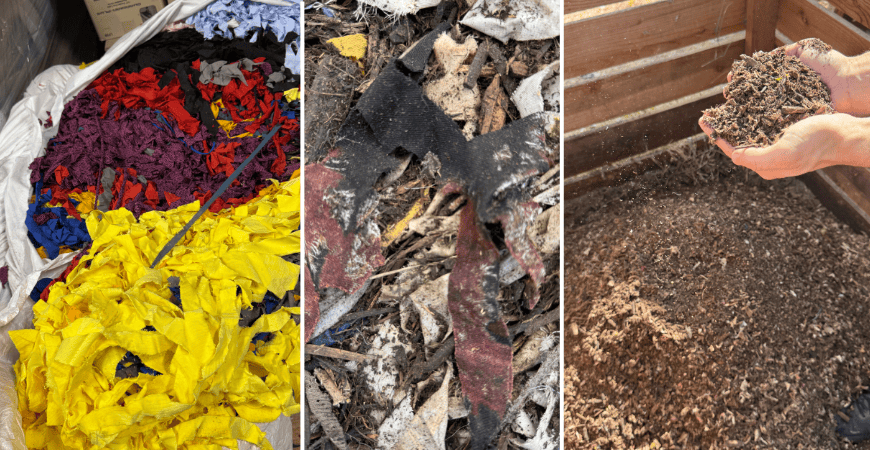
UC Merced researchers are collaborating on a two-year research project to develop effective composting methods for cotton textiles.
The project explores manufacturing cotton waste scraps from clothing into compost to demonstrate efficient composting with the right recipe, and the compost’s ability to nourish soils without introducing pollutants, according to UC Merced’s project lead, Biyensa Dubiwak, a postdoctoral scholar in the Department of Life and Environmental Sciences.
“The textile industry produces over 90 million metric tons of waste every year that ends up in landfills, contributing significantly to global methane emissions,” Dubiwak said. “We are interested in recycling it and putting it back into the soil to maintain the sustainability of the industry, in addition to the benefits the compost would provide to farmers.”
The UC Merced-led project is part of a broader collaboration involving Bowles Farming, Agromin, Fibershed, and Cotton Incorporated who funded the project. The goal is to create a circular economy by recycling cotton waste into compost and returning it to the soil to close the loop on agricultural sustainability.
“Bowles Farming, in partnership with Agromin, one the largest composting companies in the region, is working toward circular practices for sustainable production, improved soil health, and reduced environmental impacts,” Dubiwak said. “They want to make the system soil-to-soil sustainable and environmentally friendly.”

Dubiwak, who works in Professor Rebecca Ryals’ Agroecology Lab at UC Merced, brings international expertise in soil science and organic fertilizers. He earned his Ph.D. in Integrated Agriculture, Food and Environmental Sciences at the Marche Polytechnic University in Italy. His doctoral research focused on converting bioenergy waste into organic fertilizer that could replace the inorganic fertilizer needed to grow sunflowers in Italy’s Marche Region, where the bloom’s production is not only a commercial enterprise, but attracts tourists each summer.
Prior to his current role, he conducted research in Arkansas and Missouri focusing on soil health and exploring pathways to mitigate the spread of micro-pollutants in soils when organic waste is used as fertilizer.
Dubiwak said the research team is testing composting recipes that combine cotton textiles with different green wastes to find the most effective recipe and mix for producing high-quality compost and reduced environmental impact.
The project also tracks greenhouse gases released during composting, including carbon dioxide, methane, and nitrous oxide to compare the environmental impact of composting versus landfilling.
Future phases of the research will evaluate how composted textile materials affect long-term soil health.

